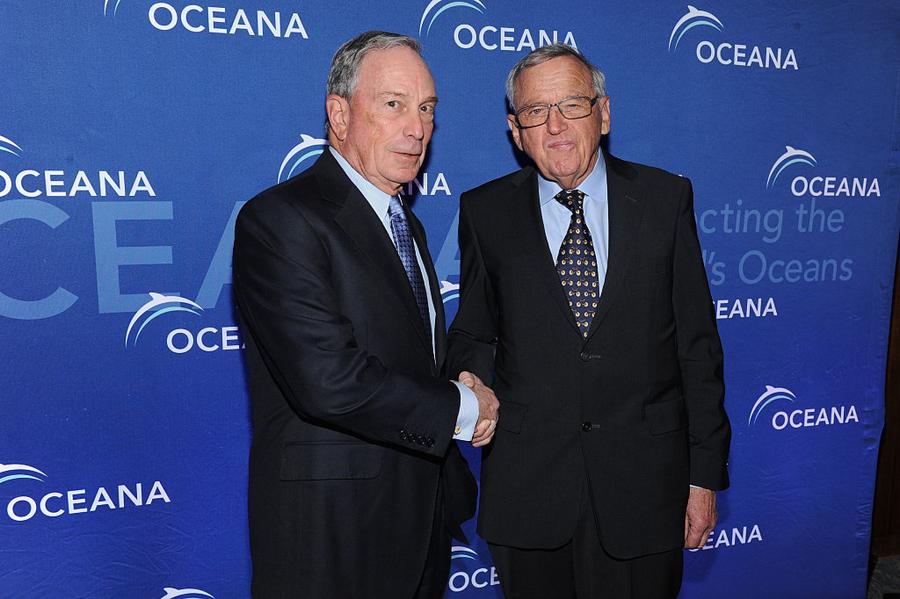Remember Hansjörg Wyss? He's the Swiss billionaire who recently announced an ambitious plan to spend $1 billion on the preservation of the planet's land, water, and wildlife therein. Now, Wyss' foundation and the Wyss Campaign for Nature has announced how some of that billion dollars to preserve 30 percent of Earth's oceans and wildlands by 2030 is being spent.
Greg Zimmerman is the Wyss Campaign for Nature's communications director, and recently spoke to Business Insider about how the foundation's plans are based around local priorities rather than any centralized edicts from on high:
"What we found over the years is that if it's not being driven by folks who live in these communities, if there's not local buy-in, then you're going to have a political problem, you're going to have a problem of these places [not] being protected permanently."

Craig Barritt/Getty Images
Some of those very local organizations have already gotten a thin wedge of Wyss' billion dollar pledge, and Zimmerman highlights $66 million in giving to local preservation orgs in 2018 alone. There's the Dehcho First Nations in Canada, which is receiving a $750,000 grant to manage the 3.5-million-acre Edéhzhíe National Wildlife Area in the Northwest Territories. Then there's Aves Argentinas, the oldest conservation organization in Argentina, which now has $5.8 million in additional funds to spend on a 1.5 million acre national park including 65,000 acres of wetlands. And Fundación Flora y Fauna is another environmental organization in Argentina that's getting $22 million towards another national park, this one in the country's Tucumán Province.
And that's just, so to speak, the tip of the iceberg, with at least six other organizations also getting sizable grants for their own conservation projects across the globe. In addition to its conservation efforts, the Wyss Foundation is reportedly also embarking on an extensive awareness campaign in advance of the 2020 UN Convention on Biological Diversity, as a way to convince governments to devote more resources towards environmental conservation.
/2018/10/GettyImages-468292814.jpg)
/2015/06/ma1.jpg)
/2023/07/GettyImages-1200624256.jpg)
/2014/01/GettyImages-462131152.jpg)
/2018/01/GettyImages-468235818.jpg)
/2015/07/Howard-Buffett.jpg)
/2019/01/James-Altucher.jpg)
/2013/12/dan.jpg)
/2011/12/John-Mara-1.jpg)
:strip_exif()/2020/06/taylor.png)
/2010/12/kate-1.jpg)
/2020/10/the-miz.png)
/2011/12/Rooney-Mara1.jpg)
/2020/08/gc-1.jpg)
/2014/04/GettyImages-886617106.jpg)
/2011/01/Aaron-Rodgers.jpg)
/2022/10/peter-krause.jpg)
/2010/03/emil.jpg)
/2020/04/hailey-joel.png)
/2015/09/Daley-Thompson.jpg)
/2020/10/david.jpg)
/2009/11/Brandon-Jennings.jpg)
/2019/01/Kennedy-Montgomery.jpg)